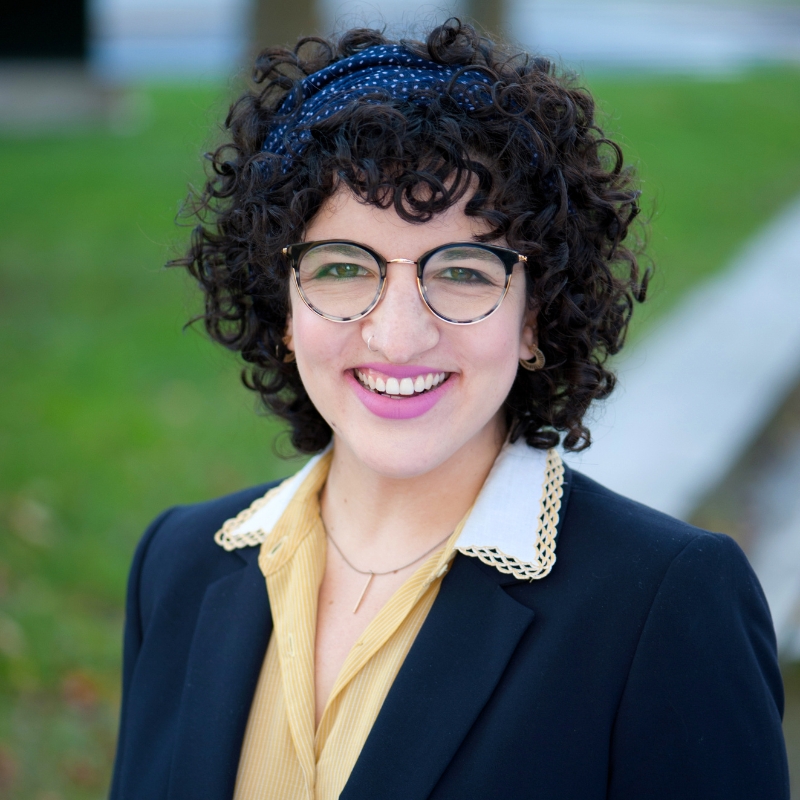On this day of commemoration of calamity, we gaze through the eyes of the prophet Jeremiah, the mythical author of the book of Eichah. We look on at the destruction of Jerusalem, crying and mourning for what we see: a desolate city empty of pilgrims, residents searching for bread at every corner to keep alive, babies dying in the arms of their mothers, golden stones stained with blood. We see it all and cry: eichah [how]?! Our tradition compels us to confront the nightmares that our ancestors lived through. On all other days, we sing with joy as we greet the day and God’s creation. Though we remain grateful for these gifts today, we temper sweetness with these most bitter lamentations. It is an opportunity to acknowledge the paradox of life that is always true: The goodness of our lives exists eternally alongside the terribly bad, and it is a moral and spiritual necessity for us to look at, and not away from, this harsh complexity of existence.
Our weekly wisdom in Parshat VaEt’chanan finds God reminding Moses of this imperative as well. Moses stands on the banks of the Jordan and begs God to let him cross the river and “see the good land on the other side of the Jordan, that good hill country, and the Lebanon” (Deuteronomy 3:25).
Find more commentaries on VaEt’chanan.
Though God will refuse to permit Moses to enter the Land, God does respond to Moses’ desire to see the Land. And like a seasoned educator, God does not simply give Moses exactly what he wants, but rather uses the moment as an opportunity to add nuance to Moses’ perspective. God commands: “Go up to the summit of Pisgah and gaze about, to the west, the north, the south, and the east. Look at it well, for you shall not go across yonder Jordan” (Deuteronomy 3:27).
If we look carefully at the interaction, we see that Moses specifically uses the word “good” twice in his request. Like many of us, Moses wishes to see “the good land,” but not its imperfections. And who can blame him? Knowing he won’t experience the Land of Israel himself, Moses wants to die with a dreamscape in his mind’s eye, skipping over the nightmares that surely await his people on the other side of the river, those horrors that any human being might find painful to gaze at: bloody wars, unrelenting desert landscape, and — especially — the sacrifices and painful choices sure to be made in the building of a nation. God’s response to Moses’ request is spoken in a punishing tone: “Enough!” God says, “Never speak to Me of this matter again” (Deuteronomy 3:26). The harshness is, perhaps, a response to Moses’ attempt to avoid the bad as he seeks to see the good. The midrash in Sifrei Bamidbar (135:1) teaches that God “showed Moses the distant as if it were near; the concealed, as if it were revealed — all that is called ‘Eretz Yisrael.’” That is to say, as Rashi summarizes: “I will let you see the whole of it,” not just the good of it.
Find more commentaries on Social Justice: Leadership and Philosophy.
As I prepare to fly home from a summer in Jerusalem, I am contemplating just how to bring back a report of the whole of it: the chilling account of October 7 from a family member of multiple hostages — her trauma and her resilience; the lived reality of Palestinians fighting relentless demolitions in Umm al-Khair under the weight of occupation — their pain and their resolve; the perspective of a friend in an intelligence unit making crucial decisions about targets in Gaza; the depth of Hamas’s evil and the hell of Gazan civilian life; the stickers with a message of peace and coexistence seen around the city from activists who love this country — the hope they give me, and the despair prompted when I see a man scratching them off a lamppost with his house keys.
While it all feels impossible to hold at once, it is a comfort to imagine God showing Moses the distant as if near, the concealed as if revealed, inviting him to see past the simple good and into the complexity. We are not just meant to see the good land, but the whole of it. In every generation, we are called upon to gaze about to the west, the north, the south, and the east; to see even what is hard to look at and cry: eichah! And when we witness injustice, bitterness, and badness, we are meant to take up the sacred task of picking up the shattered pieces of destruction and building something good, building something worth gazing upon.
Rabbi Maya Zinkow is the campus rabbi at UC Berkeley Hillel, where she is known as Rav Maya by her amazing student community. She was ordained in 2021 by The Jewish Theological Seminary, where she studied as a Wexner Graduate Fellow. Rav Maya enjoys hiking with her dog Feivel, cooking from cookbooks, and exploring California with her partner.

